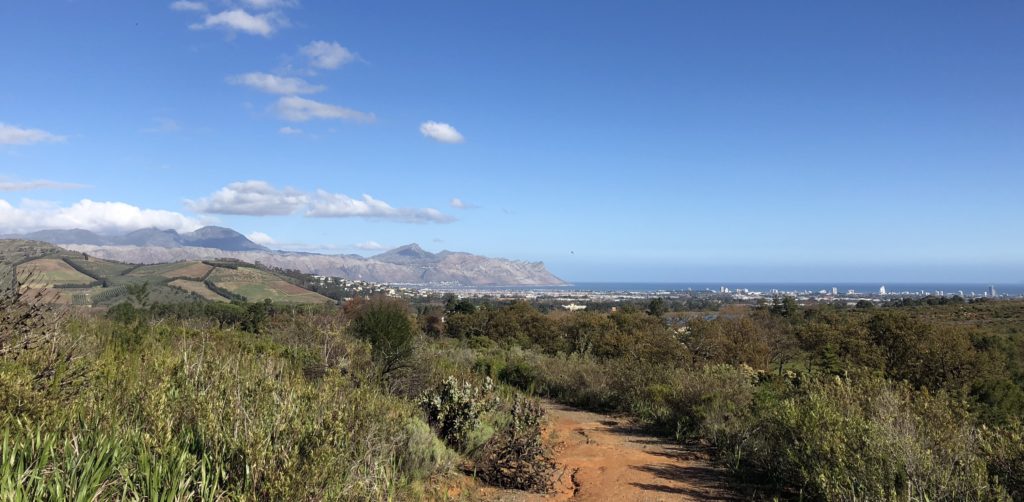
View of the False Bay from the Helderberg Nature Reserve.
The work part of the week flew by.
(I think this is the reason for the shortness of this post. As is often the case, we start with journal stuff, then nerd stuff and, hidden at the end, some backyard philosophy stuff.)
Dear diary
The weekend part on the other hand started with a welcome-back-braai (HI MOM!) on Friday, followed by a sublime oxtail potjie on Saturday and concluded today with a sublime long(ish, by my standards as always) run in the morning (showing a little solidarity with the Comrades participants whilst not completely busting my barefoot-style-acclimatising feet and ankles) plus Helderberg stroll and lunch, and is now ending with a WHV writing session.
(Sundays which start with a run, have family stuff in between, and end with WHV are automatically awarded a 12/10-would-do-again rating according to my patented How Was Your Day Honey evaluation system.)
Nerdy Pro-tip
Just in case you missed it, Google’s Gboard keyboard for iOS quietly shipped an update last week that includes as one of its new features support for Afrikaans. This brings the number of smart iOS keyboards (smart, as in AI-based) that support Afrikaans up to the total of two (2). The other is SwiftKey, which has supported Afrikaans for some years now.
(The lack of a mobile keyboard with native support for one’s language can really complicate effective communication. Preferring fully formed sentences, I’ve never really gotten the hang of SMS-speak.)
Homo Deus
After a slight detour with a number of other books that have featured on this blog, I have returned to Yuval Harari’s Homo Deus.
I am about 75% through, but I can already say that this is one of the best works I’ve read in the past decade.
The way in which Harari, a history professor, weaves together so many strands of history and present to extrapolate our planet’s future is nothing short of magical. Along the way, he takes the reader along on many mind-expanding tangents.
The one tangent I made note of to mention here, was his treatment of the illusion, which we are all brought up to entertain, that each human houses a single ego or individual.
By citing and discussing several examples of humans with separated brain hemispheres, he makes a strong case for the observation that most probably you house multiple identities.
There is a strong narrating self who tries to weave together the experiences and inputs of the other selves, and who will go to great lengths to make everything fit.
Thinking about all of the internal discussions one has throughout every day, and the seeming disagreements one can have between yesterday’s you and today’s you, Harari’s thesis starts to sound like a really good explanation.
This soon leads to interesting new questions: What would be the best way to manage one’s multiple aspects, especially in the light of the fact that “one” does not even know with certainty who is asking this question?
(Astute readers will have noticed that my choice of a title for this blog has finally been vindicated after all this time.)
See you next week, my suddenly multitudinous readers!
P.S. Harari says that intelligence and consciousness don’t necessarily go together. We are entering a future where many of us are going to be made obsolete by constructs which don’t possess consciousness but are far more intelligent than we are.
P.P.S. For one of the best hard sci-fi books dealing with our often-held but anthropocentrically flawed perspective that consciousness and intelligence go together, you can do a lot worse than Blindsight, by Peter Watts. Read that book.